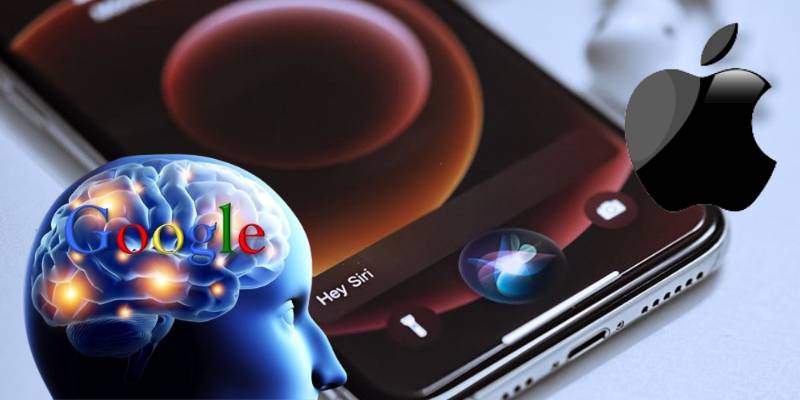It’s almost the twist you’d expect in a tech-world plot that no one predicted: Apple is reportedly closing a deal with Google to license Google Gemini technology as part of the next generation of Siri.
As reported by Reuters, the collaboration would be all too uncommon these days in Silicon Valley’s ongoing AI cold war and could very well revitalize Apple’s much-maligned voice agent.
For years Siri was the digital buddy who didn’t quite get your joke, paling in comparison to Google Assistant’s and ChatGPT’s integrations.
But with Gemini there under the hood – a system that contains more than a trillion parameters – Siri could soon evolve from a polite know-it-some to an actual conversationalist.
Some insiders say the alliance is worth around a billion dollars a year, small change if it helps Apple to play catch-up in what’s quickly becoming a generational shift in computing.
Now, I have to confess something. As a person who has screamed “Hey Siri, just play something!” ad hominem attacks on my phone more often than I’d care to admit, the notion of her finally grasping context feels nearly revolutionary.
The company’s Gemini model, which already powers the new conversational updates in Google Maps, is made to respond conversationally, understand intent and even switch tone mid-listen.
Picture a Siri that can detect when you’re stressed and dials down the chipper energy - at last.
But this is where it gets messy. Apple, the company that’s treasured privacy in a way unrivaled by others, is poised to integrate technology from one of the businesses hoping to capitalize on data itself. It’s an odd pairing.
Already, analysts are questioning by Apple will ensure privacy of user interactions while leveraging the Google AI behemoth.
Some people speculate that the deal is more of a bridge than a merger: Apple will lean on Gemini for now as it continues developing its own models, similar to what it did with Intel chips before Apple Silicon.
Over at The Verge, tech writers are already versus placing bets and the like: This is the dawn of a pragmatic Apple – albeit one that will prefer cooperation to reinventing the wheel:
And perhaps that’s not terrible. We have seen comparable power-sharing plays in the past.
Nvidia’s chief executive recently said that China might achieve greater AI dominance than the U.S., suggesting Western companies should worry less about competition and more about collaboration.
If so, Apple and Google’s marriage of convenience might be more about survival than friendship.
Because let’s face it – AI development isn’t cheap, and even trillion-dollar companies are beginning to share the wealth.
There’s also an interesting macroeconomic aspect to this. Google’s own R&D arm, DeepMind, recently began recruiting an “AI economist” to investigate the impact AGI could have on global markets.
That tells you something: The very people developing this technology are already worrying about its social aftershocks.
And Apple’s take on “responsible AI” could, for its part, look more like user control and brand safety than world-changing philosophy.
And if you believe this is simply another fly-by-night tech headline, think again.
What Siri could become might actually reframe how we interact with Apple devices all over again - conversational control of every app, smarter contextual suggestions, and a single AI-driven personality that covers off iPhone, Mac, and Vision Pro.
Imagine asking, “Siri, plan a weekend trip for me,” and receiving a full itinerary generated by Gemini’s reasoning engine. That’s not science fiction anymore.
In the end, what we’re seeing is a power shift in polite marketing-speak. Apple requires Google’s brains; Google requires Apple’s ecosystem.
It’s a marriage of convenience, not love – but hell, some of those turn out to be more durable than the romantic variety.


